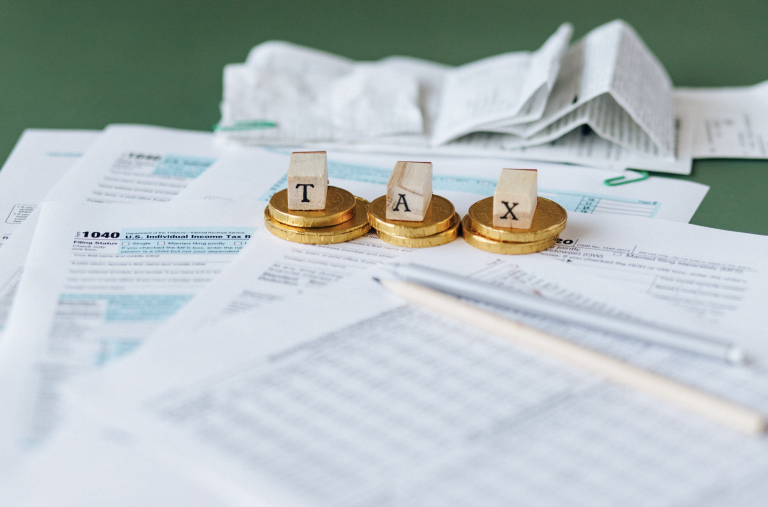Employer Not Paying Your Super? What Should You Do?
Does your Super account balance look low? If you check your Super account and you think something’s off, you need to check with your employer.
Your employer is required to contribute to your Super account every quarter. Most of the time, employers will do what’s required of them. They’ll contribute to your Super on-time, every quarter.
We’re sure this is because your boss is a nice person doing the right thing. But, there are also strict penalties enforced for employers who don’t contribute to their employees’ Super accounts. They would lose a lot of money in fines if they choose to break the rules.
Unfortunately, there are some employers who still try to cut corners. You may look at your Super statement each quarter and wonder why your balance is so low. If that’s the case, there’s a chance your employer may not be contributing to your Super account.
If you find out that your employer isn’t contributing to your account, there’s no need to worry. Employees have actions they can take to get the Super payments they deserve. Those steps are what we’re going to talk about in today’s article.
So, read along with us and find out how to get back these unpaid Super contributions.
Watch Your Super Account
It’s important for employees to keep a watchful eye on their Super account. You should be checking your statements regularly. The same way you would cheque statements for your bank account.
The law states that your employer should be contributing 10% of your base salary to your Super account. This is the minimum Superannuation Guarantee (SG) that’s required by law.
The amount of employers that don’t pay the right amount is alarming. According to recent statistics, one in three Australian workers are having the wrong amount contributed to their accounts by their employers. In 2016, Australian workers’ Super funds came up about $6 billion short.
As a result, the tax office began to make tracking down unpaid Super payments a priority. They were able to get back $805 million of that outstanding total in 2018-2019. But, there are still a lot of unpaid or incorrect Super contributions.
Pay Attention in These Industries
Unpaid Super contributions can happen to anyone. And, they can happen throughout Australia. But, experts have noticed that unpaid Super is popular across some specific industries.
Employers who don’t pay the proper Super contributions seem to be more of a problem in lower-income occupations. Here are the industries most affected by unpaid or delayed Super contributions.
- hospitality workers
- tradies
- machinery operators
- construction workers
If you or someone you know works in one of these industries, let them know to keep an eye on their Super account. It’s a good idea for everyone to watch their Super account balance. But, these industries should be especially careful.
This has become even more of a problem since the COVID-19 pandemic. Employers’ budgets have become tighter since quarantine and other COVID restrictions have affected companies throughout Australia. As a result, these employers are putting other bills and expenses ahead of Super payments.
Super payments are being delayed across Australia. And, in some cases, employers may not even be making their minimum SG payment.
The Real Impact of Unpaid Super
So, why is it so important to claim your unpaid Super contributions? Obviously, getting any amount of money owed to you is important. But, with Super, the consequences of not getting that money back can be a lot greater.
The money in your Super account is invested in your retirement. We’re sure you know that at this point. What you might not know, however, is how the compounding interest works.
Interest in any financial account compounds. Your Super account is no different. The actual mechanics of compounding aren’t necessary for this article, but it’s important to know that compounding is essential to your Super account. Compounding interest is what makes a few hundred dollars invested today worth several thousand dollars by the time you retire.
Therefore, it’s important that you take whatever steps are possible if you notice there are contributions missing from your Super account.
How to Retrieve Unpaid Super Contributions
The very first step in the process is to make sure you’re eligible to receive Super contributions. Most Australians in the workforce meet the eligibility requirements.
Australians need to be at least 18 years of age and receive at least $450 per month in salary from their job. Any Australian meeting both of those requirements is eligible for Super contributions from their employer.
Employees receive these payments regardless of their employment status. Full-time, part-time, and casual employees are all eligible for Super. You can receive Super contributions even if you’re a temporary resident of Australia.
Contract workers can also receive Super contributions from their “employers”.
Once you’ve determined your eligibility for Super contributions, the next step would be to cheque your most recent member statement. Employers should be contributing to your Super account on a quarterly basis.
If you don’t have your most recent statement, you can contact the company managing your Super fund. They can check and confirm if your employer contributed during the period you’re researching.
If you find that your contribution wasn’t paid for that period, your next step is to bring it to your employer’s attention. Most of the time it’s just an oversight. Your employer will do the right thing and rectify the situation as soon as they possibly can.
Bringing It to Your Boss’ Attention
You don’t want to jump to conclusions and accuse your employer right away. There are some questions you should ask them first to find out the situation.
Ask them how often they’re contributing to your Superannuation fund. You’ll also want to ask them how much they’re contributing and which fund it’s going to.
You may also be eligible to choose your own Super fund. It’s important to verify this with your employer, as well.
Once you’ve had a conversation with your employer, if you still believe they’re not contributing to your Super fund, they’re contributing the incorrect amount, or they’re contributing to the incorrect fund, you can escalate the matter to a formal complaint.
Lodging a Complaint with the ATO
The ATO has a web portal for employees who want to lodge a complaint about unpaid Super. You can find this tool by visiting the ATO website and clicking the “Report Unpaid Super Contributions From My Employer” link. Once you’re there, walk through the corresponding steps on the ATO website.
After you submit the form, the ATO will start an investigation into your claim based on the information you provide. Complaints regarding late payments or payments into the incorrect fund can also be handled by the ATO web tool.
The timeline for lodging your complaint is very important. The ATO can only investigate claims after the corresponding Super contribution lodgement date has occurred. Therefore, if you think your employer hasn’t paid your Super for a particular quarter, the ATO can’t investigate until after Super payments are due for that particular quarter.
ATO Superannuation Schedule
To help you ensure that you submit your complaint at the right time, here is a look at the proper Super contribution schedule.
1st Quarter – 1 July to 30 September
2nd Quarter – 1 October to 31 December
3rd Quarter – 1 January to 31 March
4th Quarter – 1 April to 30 June
Your employer’s Superannuation Guarantee and SG statement and fee dates are different. Here is the schedule for your employer’s superannuation contributions.
1st Quarter – SG due on 28 October, SG Statement and Fees 28 November
2nd Quarter – SG due on 28 January, SG Statement and Fees 28 February
3rd Quarter – SG due on 28 April, SG Statement and Fees 28 May
4th Quarter – SG due on 28 July, SG Statement and Fees 28 August
So, for example, if an employee wants to cheque on Super contributions for the 1st Quarter (1 July to 30 September), they can’t lodge a complaint with the ATO until after 28 November.
The Information You Need To Provide
In order to make your complaint with the ATO go as smoothly as possible, you need to make sure you provide the right information.
You’ll need to provide your personal tax file information. You’ll also need to supply the ATO with the Superannuation period you’re looking into and your employer’s Australian Business Number (ABN).
You can usually find your employer’s ABN on your most recent paystub. If you don’t have a paystub, you can look on your company’s letterhead. As a final option, if all else fails, you can search online in the Australian Business Register ABN look-up tool.
If you feel an employer is not paying Super contributions, you can also call the ATO’s confidential hotline. Their number is 1800 060 062.
Fight for Your Right
Employer Super contributions are one of the benefits of your hard work. Every employee should be getting the contributions they deserve.
If you don’t keep an eye on your Super account, it will only end up affecting your retirement. And, by then, it’s too late.
For more information on halal super, or superannuation in general, contact Crescent Wealth. Our team of experts is more than happy to answer any questions you have. We’re here to set you up for success!
Share this
You May Also Like
These Related Stories

Making your super work for you

Tax-Deductible Superannuation Contributions: How Does It Work For Your Halal Super?


